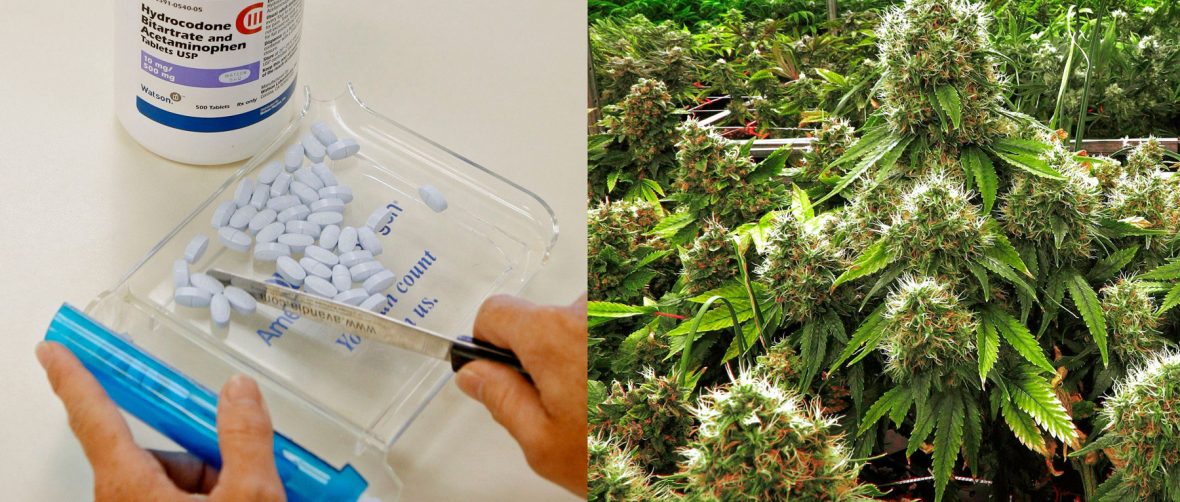In August, Illinois Governor Bruce Rauner signed the Alternative to Opioids Bill, making it possible for patients in the state who had been prescribed opioids to opt for medical marijuana instead. The Opioid Alternative Pilot Program (OAPP), which is the first of its kind in the U.S., officially began accepting patients at 8:30 on Thursday morning.
“Just half way through the first day of the launch and we’ve already seen a lot of interest and patients and physicians have successfully registered for the Opioid Alternative Pilot Program,” Illinois Department Public Health OAPP Director Conny Meuller-Moody told Rolling Stone in an email. “We’re optimistic the program will benefit many Illinois residents and offer them an alternative for managing their pain.”
Interested patients who are over the age of 21 can enroll in the program using their state ID and written certification from a physician saying that they’ve either been prescribed opioids or have a condition for which they could be. Dispensaries will validate patients’ enrollment using an online verification database, and can then provide them with medical marijuana.
The state has an existing medical marijuana program, which was established in 2014, but it’s one of the most restrictive in the country, with long wait times and a complicated, bureaucratic application process. The idea is for this new system to be a quicker and easier way for patients who need it to access medical marijuana. Enrollment in the program gives patients 90-day temporary access to the medical marijuana program, and during that time they can apply to join long-term. And for those who are uncertain about whether marijuana will be sufficient to ease their pain, enrollment will not invalidate their opioid prescription, so they will still have access to their usual medication and use marijuana to supplement — and then decide if they want to replace opioids altogether.
Opioid overdose deaths are on the rise, with Americans now more likely to die of accidental overdose than in a car accident, and the prevalence even lowering the overall average life expectancy in this country. Politicians and healthcare providers are scrambling to find ways to curb this deadly trend. In the past, marijuana was seen as a “gateway drug” that would lead to the use of more dangerous street drugs, but now it’s often used as a safer alternative to some of the most dangerous drugs out there — the ones that come from pharmacies — or an “exit drug,” as Sam Dorf, the Chief Growth Officer of Chicago-based cannabis cultivation, manufacturing and retail company Verano Holdings calls it.
“The implementation of Illinois’ Opioid Bill aptly illustrates how attitudes about cannabis are changing for the better,” Dorf told Rolling Stone in an email. “With the Opioid Bill, Illinois is at the forefront of recognizing the benefits of cannabis for health and wellness and combatting opioid abuse. It will serve as a great pilot program for other states to watch and as they develop their programs.”
“This has given a lot of patients access to an alternative, and that’s what people are looking for,” says Anthony Marsico, Verano Holdings’ Chief Retail Operating Officer. “Patients are excited. We’ve been getting tons and tons of phone calls with people asking how they can get enrolled.”

